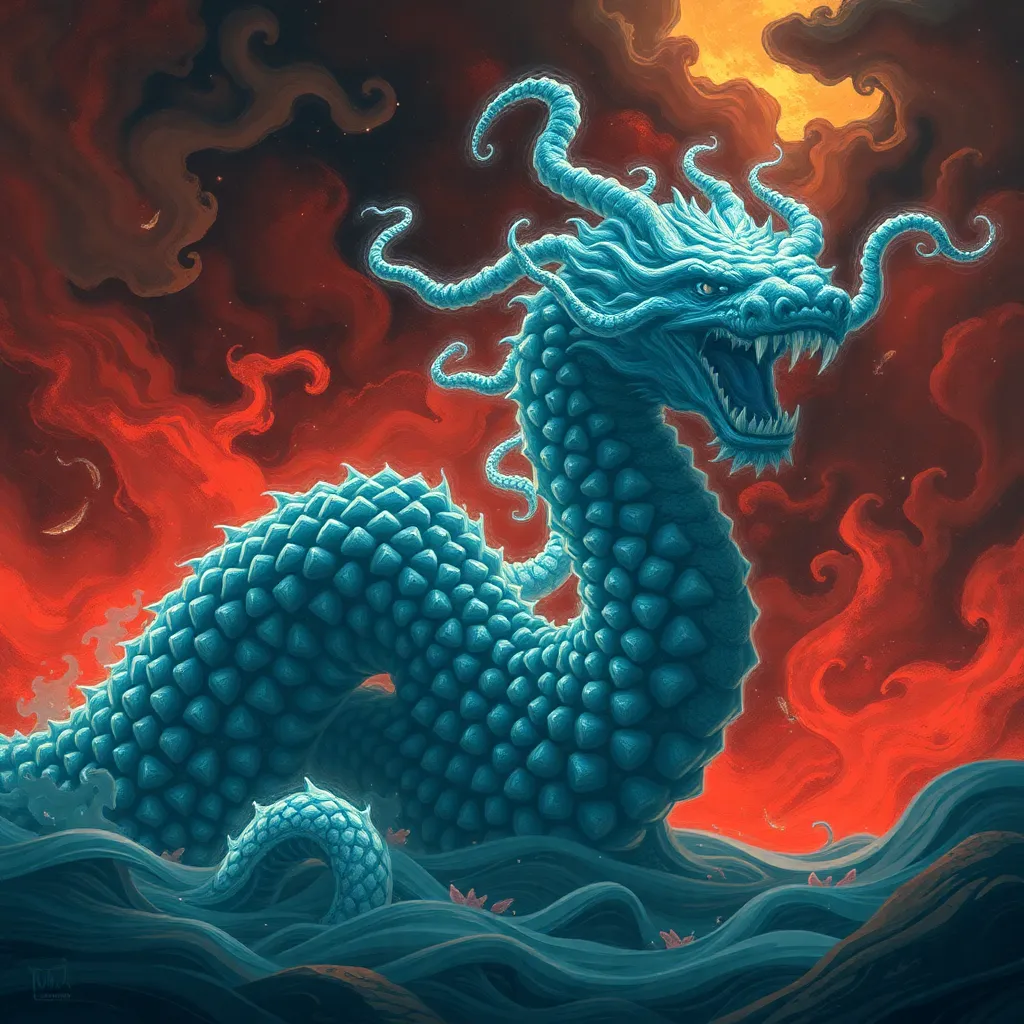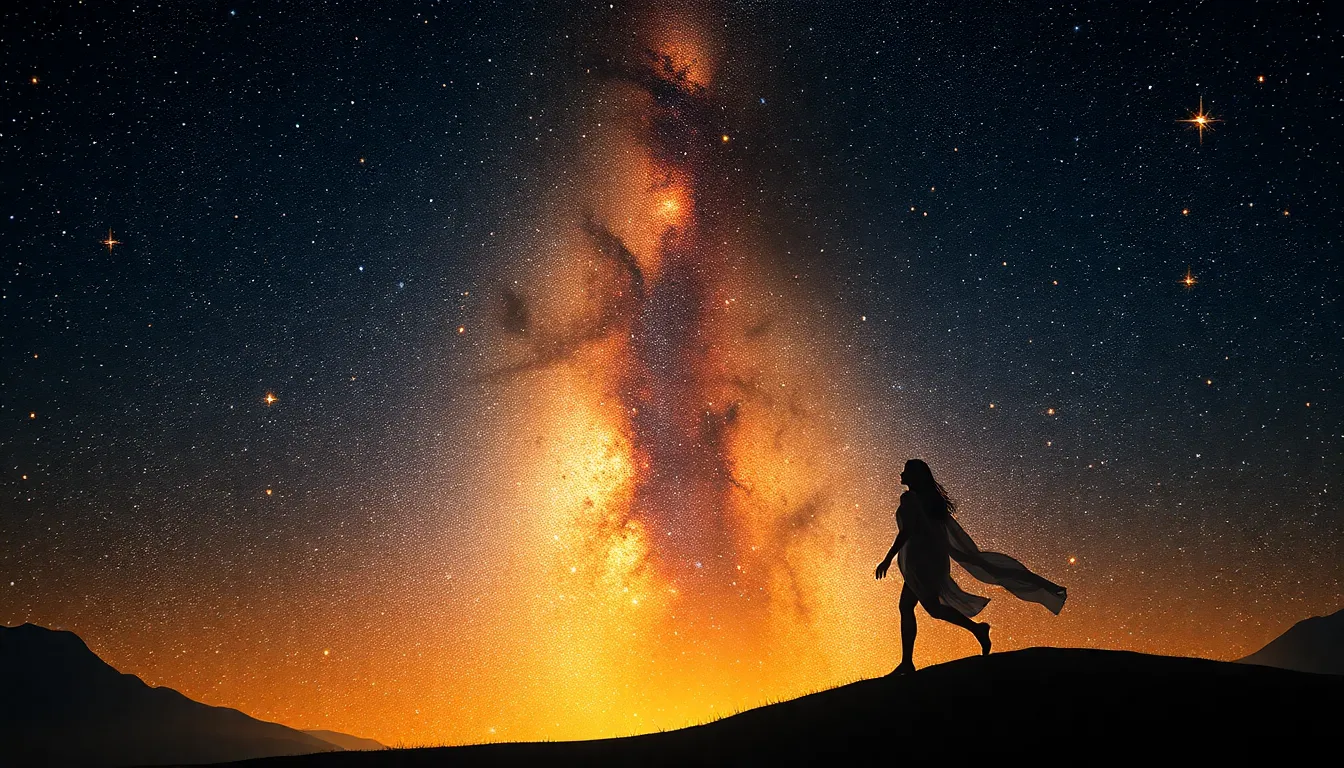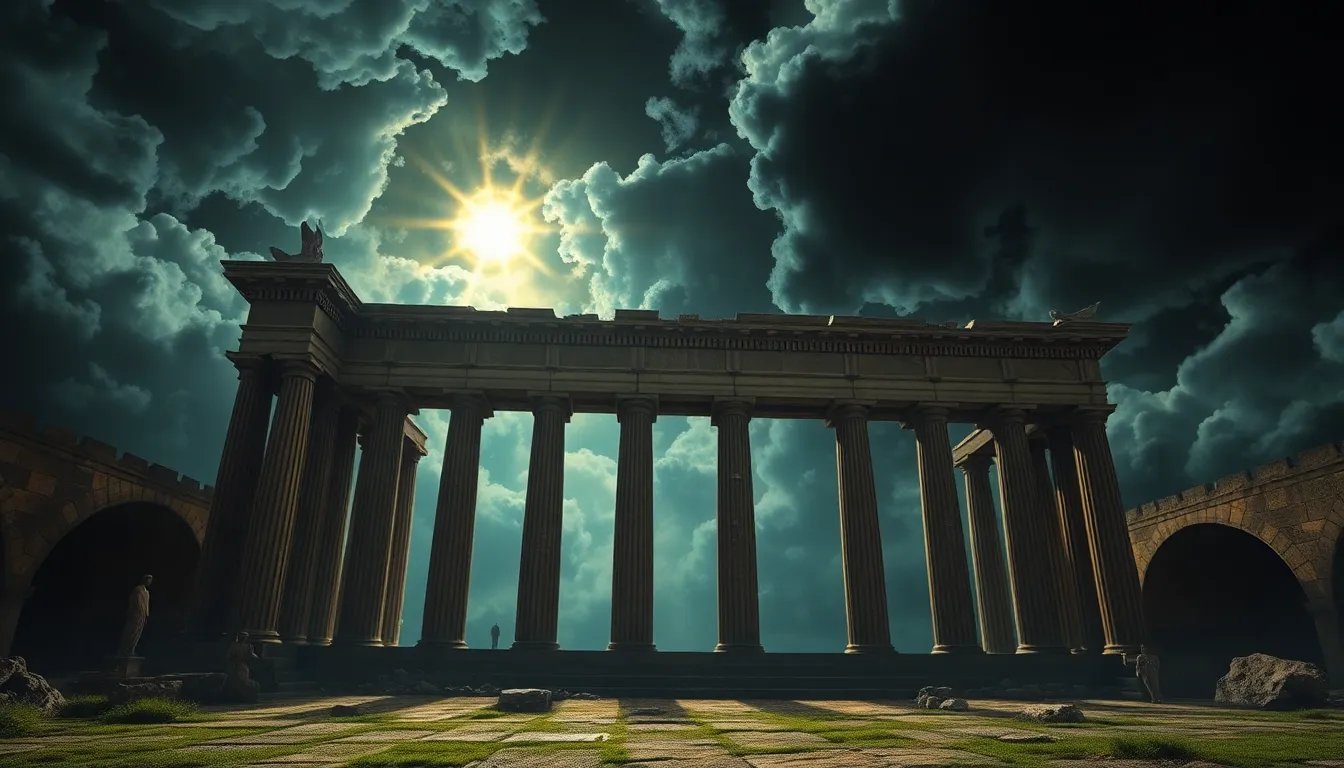The Hydra’s Song: Exploring the Monster’s Connection to Music and Poetry
I. Introduction
The Hydra, a serpentine water monster from Greek mythology, is one of the most iconic creatures in ancient lore. Known for its many heads and regenerative abilities, the Hydra has captivated the imaginations of countless generations. As a symbol of chaos and danger, it embodies the struggles and fears that humanity has faced throughout history.
Music and poetry have always held a significant place in ancient cultures, serving as a means of storytelling, preserving history, and expressing the inexpressible. These art forms often intertwine with mythological themes, providing a rich tapestry of emotion and narrative. This article aims to delve into the intersection of the Hydra with music and poetry, exploring how this legendary beast has inspired countless artistic expressions over the ages.
II. The Hydra in Mythology
The Hydra’s origins are rooted in ancient Greek mythology, particularly in the Lernaean Hydra, a creature born from Typhon and Echidna. It was said to dwell in the swamps of Lerna, terrorizing the local populace with its ferocious nature.
The stories surrounding the Hydra are numerous, with the most famous being its role in the Twelve Labors of Hercules. Charged with slaying the beast, Hercules faced the daunting challenge of cutting off its heads, only to discover that for each head severed, two would grow back in its place. This formidable opponent symbolized not only physical danger but also the struggle against seemingly insurmountable odds.
As a multifaceted creature, the Hydra represents various themes such as regeneration, resilience, and the complexities of life and death. Its many heads can be seen as a metaphor for the many challenges one faces, each requiring a unique solution.
III. Music and Monsters: A Historical Perspective
Throughout history, music has played a crucial role in storytelling and the conveyance of mythological tales. Ancient cultures often used songs to narrate heroic deeds, such as those of Hercules facing the Hydra. The intertwining of music and mythology served to enhance the emotional depth of these stories.
Many ancient texts reference mythical creatures alongside musical compositions. For instance, hymns and poems often described the heroic battles against monsters, with music providing a backdrop that heightened the drama. The Hydra, with its fearsome presence, has inspired various musical interpretations, from operatic arias to orchestral suites.
- Influential Works: Composers like Richard Wagner and Igor Stravinsky have drawn inspiration from mythological themes, incorporating the essence of creatures like the Hydra into their compositions.
- Modern Adaptations: The Hydra’s story continues to inspire contemporary musicians, leading to innovative interpretations in genres ranging from metal to classical.
IV. Thematic Resonance: The Hydra and the Arts
The themes present in Hydra-related art and poetry often explore the duality of beauty and horror. Artists depict the Hydra in various lights, from a fearsome monster to a symbol of strength and endurance. This duality resonates deeply within the human experience, reflecting our struggles and triumphs.
In visual art, the Hydra is often illustrated in dramatic poses, emphasizing its terrifying form while simultaneously showcasing the intricate beauty of its scales and heads. This interplay between horror and beauty translates seamlessly into musical expression, where compositions can evoke both fear and awe.
- Emotional Depth: The depiction of the Hydra can evoke a sense of wonder as well as dread, allowing artists to explore complex emotional landscapes.
- Musical Expression: Composers capture the essence of the Hydra through dynamic contrasts, using dissonance to represent chaos and harmony to symbolize triumph.
V. The Hydra’s Influence on Modern Music
In contemporary music, the Hydra’s imagery continues to inspire a wide array of artists and genres. Modern interpretations of the Hydra often reflect themes of struggle, transformation, and resilience—elements that resonate with today’s audiences.
Many contemporary artists have woven the Hydra into their narratives, creating songs that evoke its powerful symbolism. For example:
- Song Analysis: “Hydra” by a popular metal band explores themes of battling inner demons, drawing parallels between the Hydra’s regenerative abilities and the struggles one faces in life.
- Popular Culture: The Hydra has made appearances in film soundtracks and video game music, further embedding its legacy into modern artistic expressions.
VI. Poetry Inspired by the Hydra
The Hydra has also found its way into the realm of poetry, where it serves as a powerful metaphor for various human experiences. Poets have used the creature to explore themes of fear, resilience, and transformation.
In poetic works, the Hydra often symbolizes the complexities of life and the challenges one must overcome. For instance:
- Metaphor and Symbolism: Poets use the Hydra to illustrate the many facets of struggle, with each head representing a different obstacle that must be addressed.
- Emotional Impact: The emotional narratives surrounding the Hydra evoke feelings of both despair and hope, providing a rich ground for reflection and introspection.
VII. The Hydra as a Metaphor for Artistic Creation
Beyond its representation as a monster, the Hydra can be seen as a metaphor for the artistic creative process itself. Its regenerative nature mirrors the way artists often experience creative blocks and breakthroughs.
Artists frequently draw inspiration from their struggles, transforming challenges into profound works of art. The Hydra, with its ability to regenerate, symbolizes resilience and the capacity to rise after defeat, a common theme in both music and poetry.
- Creative Resilience: Just as the Hydra returns after being attacked, artists often find new ways to express themselves following setbacks.
- Transformation: The journey of creation is marked by transformation, much like the Hydra’s ability to adapt and survive.
VIII. Conclusion
In exploring the Hydra’s connection to music and poetry, we uncover layers of meaning that resonate across time and culture. The Hydra serves as a powerful symbol of struggle, resilience, and transformation, inspiring countless artists to draw from its mythological roots.
The lasting impact of the Hydra on artistic expression is a testament to the enduring power of mythology in contemporary creativity. As we continue to navigate our own challenges, the Hydra remains a poignant reminder of the beauty and horror inherent in the human experience, echoing through the melodies and verses of our artistic endeavors.



